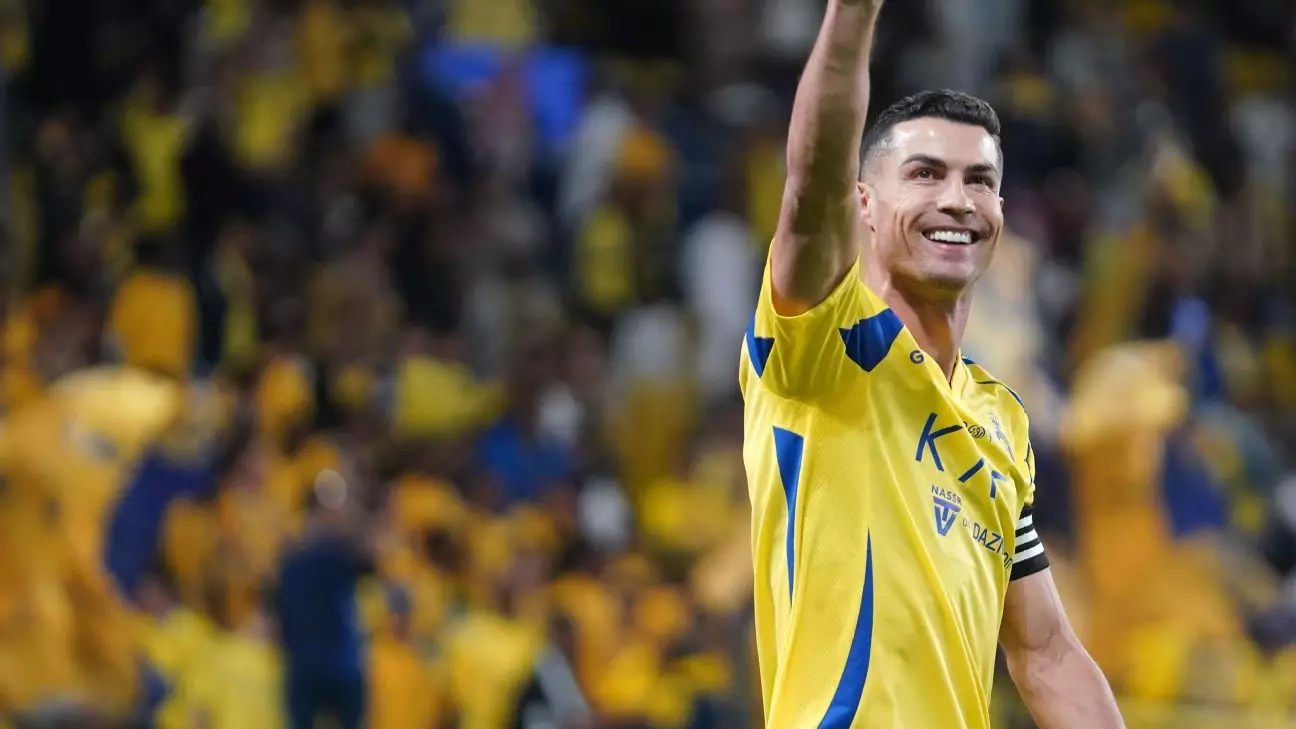Manchester United, one of the most storied football clubs in the world, finds itself in turbulent waters once again. Recent comments by former star player Cristiano Ronaldo have shed light on the deeper, systemic issues plaguing the club that go far beyond the coaching staff. As Manchester United navigates the rocky terrain of managerial instability and disappointing performances, the legendary forward’s insights raise crucial questions about ownership, club culture, and the competitive nature of modern football.
Under the leadership of Ruben Amorim, who was appointed amidst much anticipation, Manchester United’s results have been decidedly mediocre—losing five out of ten games in charge, including four of the last five in the Premier League. The pressures of performance in such a demanding league have been a harsh reality for Amorim, who himself admitted that his job is not secure. However, Ronaldo, now playing in Saudi Arabia for Al Nassr, has been quick to clarify that the woes of Manchester United cannot solely be placed on the shoulders of the coach.
Ronaldo’s assertion that “the problem is not the coaches” speaks to a broader issue within the club. He likened the situation at Manchester United to that of an aquarium with sick fish; simply removing the fish and treating them will not solve the underlying issues within the system. This analogy emphasizes the importance of addressing the root causes affecting performance rather than merely cycling through managers as a quick-fix approach.
One of the most significant points Ronaldo made involves the role of ownership. He expressed a desire for more oversight and involvement in the club’s management decisions if he were the owner. With a storied career and immense influence, Ronaldo’s perspective lends credence to the notion that the Glazer family’s ownership is a significant point of contention. He has previously criticized their lack of care for the club, and his comments suggest that without a change in ownership mindset or strategy, Manchester United may continue to flounder.
Ronaldo’s aspirations to one day be a club owner adds another layer of intrigue to the situation. His cryptic comments hint at future investments or ownership opportunities that may exist, potentially setting a stage for a transformative era, should he act on those ambitions. He stated, “I will be owner of a big club. For sure,” indicating a confidence in his future plans that could disrupt traditional ownership dynamics in football.
The competitive landscape of English football has evolved dramatically in recent years. Ronaldo noted that every team is now capable of putting up a fierce fight, and there are no “easy games” anymore. This revelation holds significant weight as it reflects the reality that clubs like Manchester United need to adapt not only in tactics but also in management and strategy. The transition from a historically dominant force in the Premier League to struggling amidst mid-table teams is a bitter pill for fans and players alike.
Despite the current struggles, Ronaldo remains optimistic about the potential for improvement under Amorim. Having observed Amorim’s success with Sporting Lisbon, where he garnered respect and accolades, Ronaldo speaks from a place of understanding about the necessary adaptation to the Premier League’s unique demands. His belief that “the storm will finish and the sun will rise” encapsulates a hope that transcends a mere commentary on results—he longs for a revitalization of a club he still holds dear.
Ronaldo’s insights provide a compelling lens through which to view the complexities enveloping Manchester United. From coaching instability to ownership challenges and the relentless competitiveness of modern football, the club is navigating multifaceted issues that require more than surface solutions. As Ronaldo remains in the spotlight, both as a player and future potential owner, the journey of Manchester United will undoubtedly be watched closely by fans and insiders alike.
Only time will tell if greater clarity and direction can emerge from this sea of uncertainty. However, one thing is certain: the legacy of Manchester United, intertwined with the determination of influential figures like Cristiano Ronaldo, will play a pivotal role in shaping the future of this iconic club.


Leave a Reply